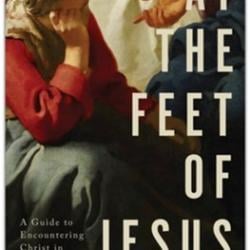Derrida points out that there is no friendship that isn't at the same time knowledge of our finitude (Memoirs for Paul de Man). The same would go for other relations in which mourning is possible, mourning for pets, objects, experiences. When I mourn, I recognize that we are mortal. Both my friend and I have a finite existence, with a beginning and an end. The absence of my friend brings that mortality into full view.
My mourning for the loss of another, therefore, is a response to our mortality. I believe in immortality, but my belief does not contradict the fact that I am mortal: others I value have died and I will die.
Hope for the resurrection does not mean that in dying my friend has not lost something valuable, the goods of mortality: tomorrow's sunrise with its bird chorus, the laughter of his grandchildren, the touch of his spouse's hand, the pleasure of good food and company, the feel of the dirt in his garden and the taste of its fruit. For him, these are no longer and never will be.
Surely resurrected beings will be nostalgic for their mortal life, and their nostalgia will be comparable to that I have for my youth. That is not to valorize nostalgia, but to recognize it and its temptation to envision what was as it never really was. However, it is also to recognize that the past for which nostalgia yearns is not merely a fiction. It is the reconstructed recognition of something genuinely lost. Even for Christians, death is loss. That there are other goods for which we hope does not mean that this life does not have its goods.
Neither does hope in the resurrection mean that I have lost nothing valuable in losing my friend: the feeling of being "at home" in the particular way that we could be with one another, the ear he gave me into which I could whine without fear that he would take my whining too seriously, his interest in my family and mine in his. The hope of the resurrection is that we will be borne from this world into another, as we have been borne into this one from another, carried by God from one existence to a new existence. But that change is not without loss.
So the work of mourning is to accept our finitude, to recognize the losses brought by death as real and to make them part of who we are, to make absence as well as presence part of our daily existence. It is to take my friend's absence up into my world, reconfiguring that world to include his absence.
The work of Christian mourning is not to ignore those losses and the absences they create, pretending that the resurrection will wipe away the losses of death. It is to accept loss and absence as the very real costs of the continued life we hope for. There is no life without loss, perhaps not even eternal life.
Paul is right: "If in this life only we have hope in Christ, we are of all men most miserable" (1 Cor. 15:19). Christ's crucifixion and resurrection are not just myths for the ignorant incapable of refined theological abstraction. They are central to the preaching of the gospel. As Paul argues in verses 12-19, without them there is no good news, the Christ-event is meaningless.
But the good news does not stop us from mourning real loss. Instead it points us forward to the possibility of a different life, a life presumably related to this life as our adult life is related to our infancy. If as God's infants we ignore death and loss, the marks of our mortality, then we also do not recognize the gift God has given us by breathing the breath of mortal, human life into us.
And if we do not recognize the value of our mortality, then we cannot truly anticipate the glory that is to come, the glory of eternal life. In the work of mourning we recognize our mortality and its costs, and as that work comes to maturity we recognize them in light of the resurrection, to which mortality and loss give meaning.





